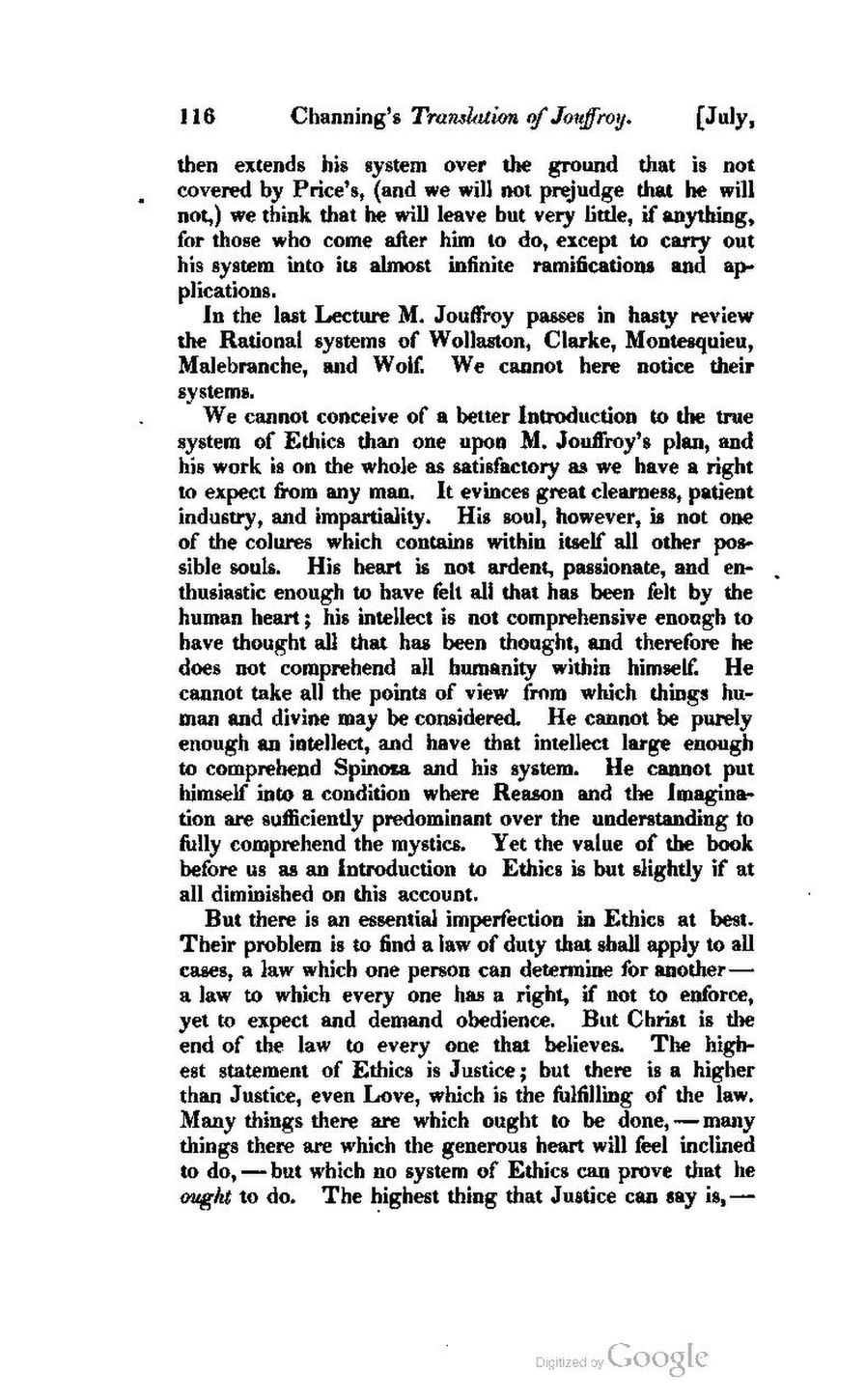then extends his system over the ground that is not covered by Price's, (and we will not prejudge that he will not,) we think that he will leave but very little, if anything, for those who come after him to do, except to carry out his system into its almost infinite ramifications and applications.
In the last Lecture M. Jouffroy passes in hasty review the Rational systems of Wollaston, Clarke, Montesquieu, Malebranche, and Wolf. We cannot here notice their systems.
We cannot conceive of a better Introduction to the true system of Ethics than one upon M. Jouffroy's plan, and his work is on the whole as satisfactory as we have a right to expect from any man. It evinces great clearness, patient industry, and impartiality. His soul, however, is not one of the colures which contains within itself all other possible souls. His heart is not ardent, passionate, and enthusiastic enough to have felt all that has been felt by the human heart; his intellect is not comprehensive enough to have thought all that has been thought, and therefore he does not comprehend all humanity within himself. He cannot take all the points of view from which things human and divine may be considered. He cannot be purely enough an intellect, and have that intellect large enough to comprehend Spinoza and his system. He cannot put himself into a condition where Reason and the Imagination are sufficiently predominant over the understanding to fully comprehend the mystics. Yet the value of the book before us as an Introduction to Ethics is but slightly if at all diminished on this account.
But there is an essential imperfection in Ethics at best. Their problem is to find a law of duty that shall apply to all cases, a law which one person can determine for another—a law to which every one has a right, if not to enforce, yet to expect and demand obedience. But Christ is the end of the law to every one that believes. The highest statement of Ethics is Justice; but there is a higher than Justice, even Love, which is the fulfilling of the law. Many things there are which ought to be done,—many things there are which the generous heart will feel inclined to do,—but which no system of Ethics can prove that he ought to do. The highest thing that Justice can say is,—
